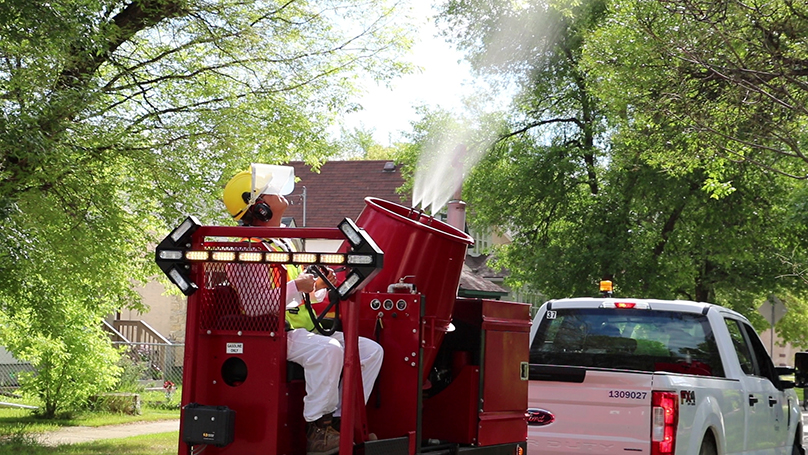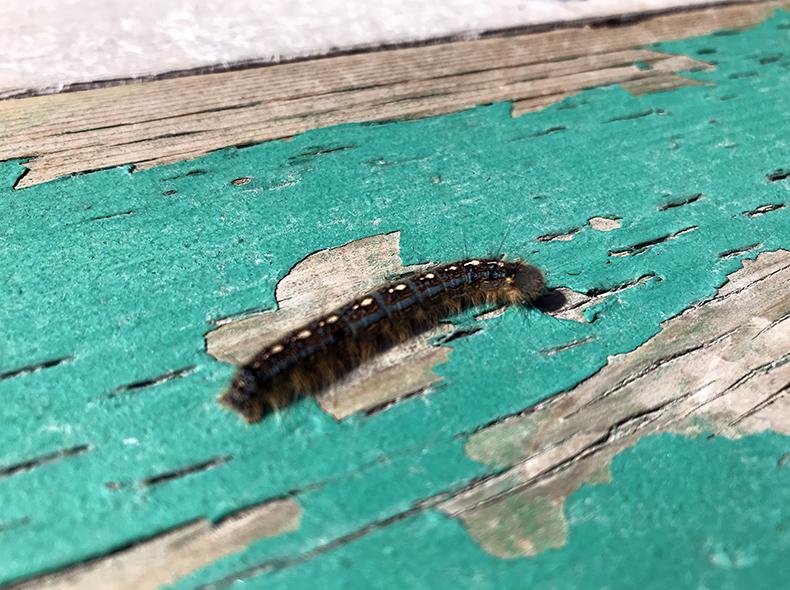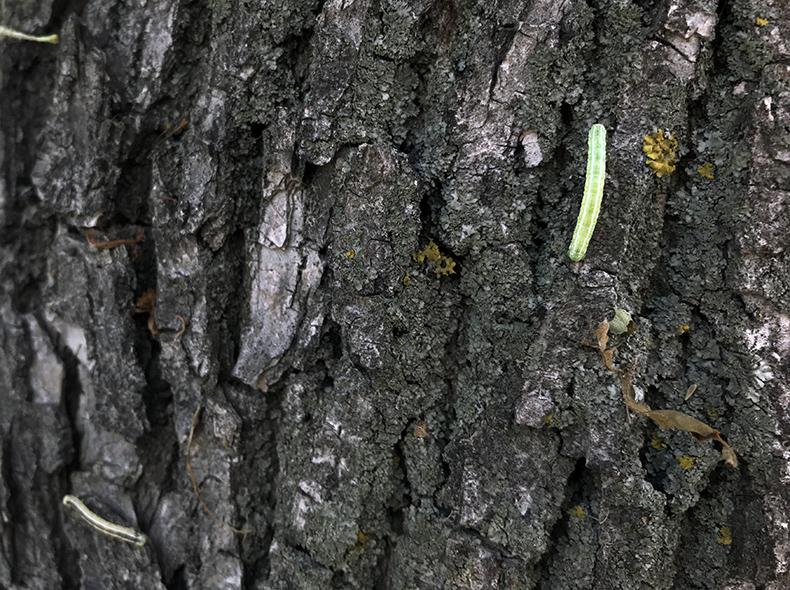
With recent dry and warm weather, tree pest caterpillars are beginning to feed on leaves in areas of the city with a high density of elm trees. To combat this infestation, crews are working to protect the affected tree canopy.
“The Tree Pest Caterpillar Control Program typically starts in May and works to reduce populations of spring and fall cankerworms and other species of pest caterpillars,” said David Wade, Superintendent of Insect Control.
This program is aimed at reducing defoliation and promoting the overall health of the urban forest tree canopy.
Wade said we use a biological insecticide approved by the Pest Management Regulatory Agency which won’t harm other living things like birds and other insects, and operations will continue in affected areas for about a month.
“Weather permitting, crews work each night and use a slow moving trailer with mounted high pressure sprayers to target areas with the potential for significant defoliation,” he said. “Residents should check the schedule and please park their vehicles in an off-street parking location when their street is scheduled for treatment."
This season’s program will be treating boulevards and focusing on our parks and cemeteries where tree pest caterpillar species are defoliating trees.
If left unchecked, a large population of tree pest caterpillars can completely defoliate a tree, and infested trees are distinguished by the appearance of holes in the leaves. The trees will survive, but it will take about three weeks for them to re-leaf.
Originally posted on June 11, 2020.


